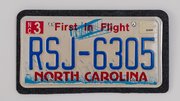Article
Relationships are key at KioskCom
In the story of kiosks past, companies have depended on technology to drive the plot. At KioskCom 2001, the new hero is customer relationships.
ORLANDO, Fla. - As KioskCom 2001, the fifth annual conference for the electronic kiosk trade, got underway, Joanne Walter, vice president of future retail at NCR Corp., wanted to talk about relationships.
The energetic Walter strolled on stage and reminisced about how she attempted to create a relationship with stuffy British banking executives resistant to the radical idea of installing ATM machines. This was 18 years ago, when she was a naïve, fresh-faced twenty-two year-old. Today, the kiosk market is reprising the story of the ATM, she said. It is an immature market seeking a relationship with consumers.
Indeed, said Walter, relationships with technology are just like human relationships. First there's attraction, followed by communication. Then, the machine must be there for you. Often, consumers will approach the machine cautiously, but if the machine is hard to use, or doesn't work properly, the relationship is over.
It's like getting up the nerve to approach someone and then being told to get lost, she joked.
Finally, you reach the stage of understanding, when using the device becomes intuitive, and the consumer comes to expect appropriate behavior.
Consumers drive retail renaissance
In the past, focus has been too much on the technology, and not the consumer, said Scott Hardy, managing director, consumer markets retail practice, of KPMG Consulting Inc. But in the new "retail renaissance," the focus has finally been taken from the supply chain and ROI (return on investment) and put back on the customer. In planning, the key is to "start with the customer and work backwards," Hardy said.
If the proper relationship can be achieved between customer and kiosk, the future for these versatile structures appears bright. Many conference exhibitors expressed a cautious enthusiasm.
"In my experience, 80 percent of the retailers we talk to are looking at rolling out some type of kiosk project in the next 12-18 months," said Emily Hastings, industry manager of Lexmark International, while staffing Lexmark's display of laser printers.
While there is no shortage of kiosk pilots in the works, some vendors think that the real growth in the industry will come when full, sizable deployments become more commonplace. Those commitments are likely to grow as kiosks prove their value.
"Consumer product companies are starting to understand (kiosks)," said Mike Mayer, president of Frank Mayer and Associates, a kiosk designer and manufacturer. Others agree that the kiosk industry is poised for a fast break, and soon.
A wave from abroad
This anticipated growth in the U.S. market has attracted the attention of several overseas competitors who are using KioskCom as a springboard. Kiosk markets in Europe may be ahead of the U.S., though the potential for growth here is unlimited.
At least three overseas kiosk creators have exhibits here, hoping to win a slice of the U.S. pie. These companies are NEO, an Australian outfit, Netnote International of Ireland and ePOINT Limited of Scotland. Netnote has already cut itself a small slice, landing its first contract for 50 units, according to Mark Millard, Netnote's vice president of sales. Houston-based ZmailMediawill distribute the units.
As evidence of how kiosks have taken off, there's the conference itself. KioskCom has nearly doubled in size, with more than 100 booths hawking everything from printers and other peripherals, to installation services, to the kiosks themselves. Last year, in Las Vegas, KioskCom had approximately 60 exhibitors.
One change has been that kiosks have become more elaborate. The design of the enclosures has matured, according to Derek Fretheim, president of CeroView, whose kiosks have been used by NBC. "There is a breakway from box-looking squares," he said.
Here in Orlando, where the pastel spring skies shimmer with the lights cast from nearby Disneyworld and Downtown Disney, a good chunk of real estate teaches a lesson in customer relationships. Picking up the Disney theme, Alex Richardson, CEO of Netkey Inc., told a luncheon audience, "Magic is Money." He went on to hone his theme. "If we create great interactive experiences like Disney, we will be a success."
 ChatGPT
ChatGPT Grok
Grok Perplexity
Perplexity Claude
Claude










